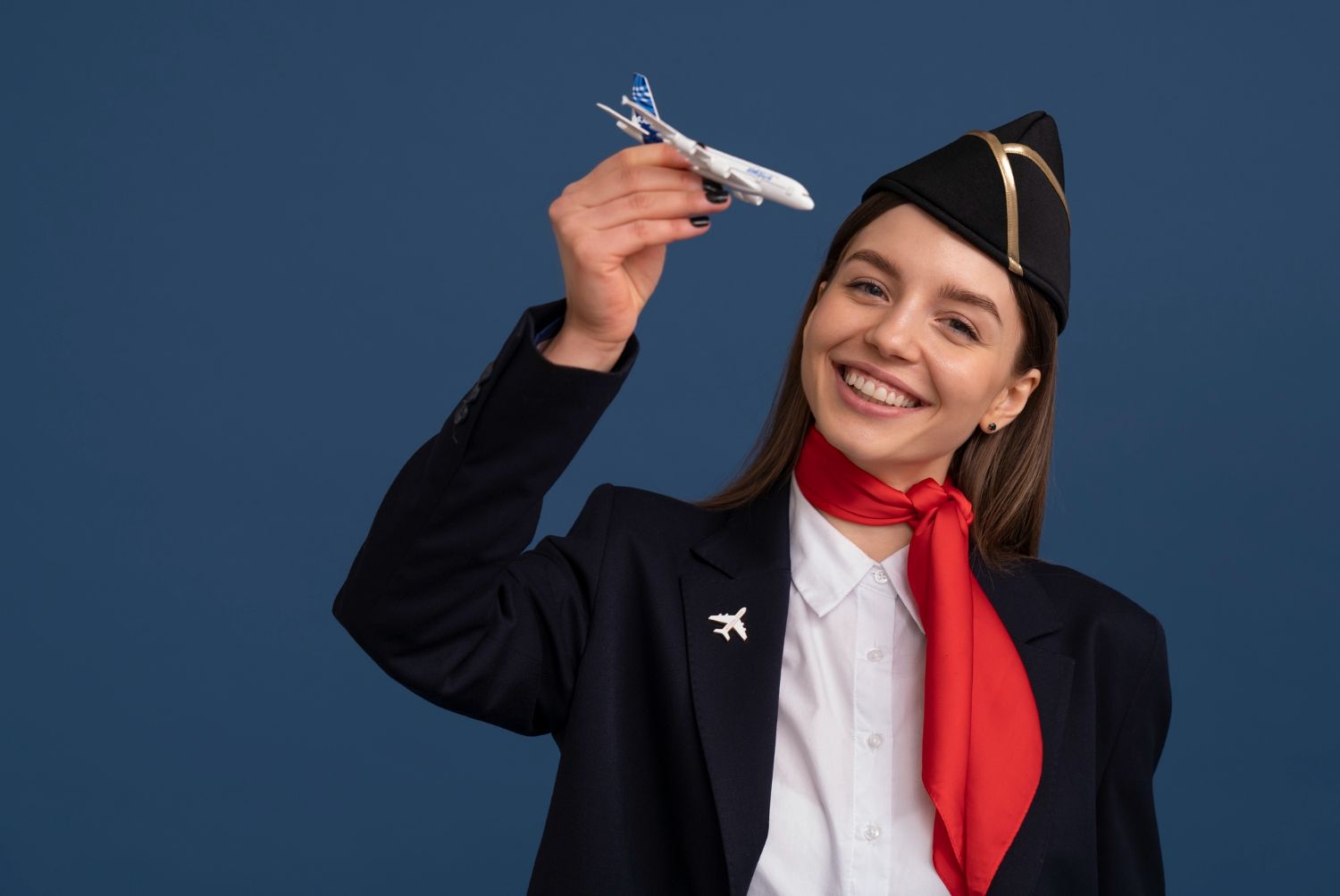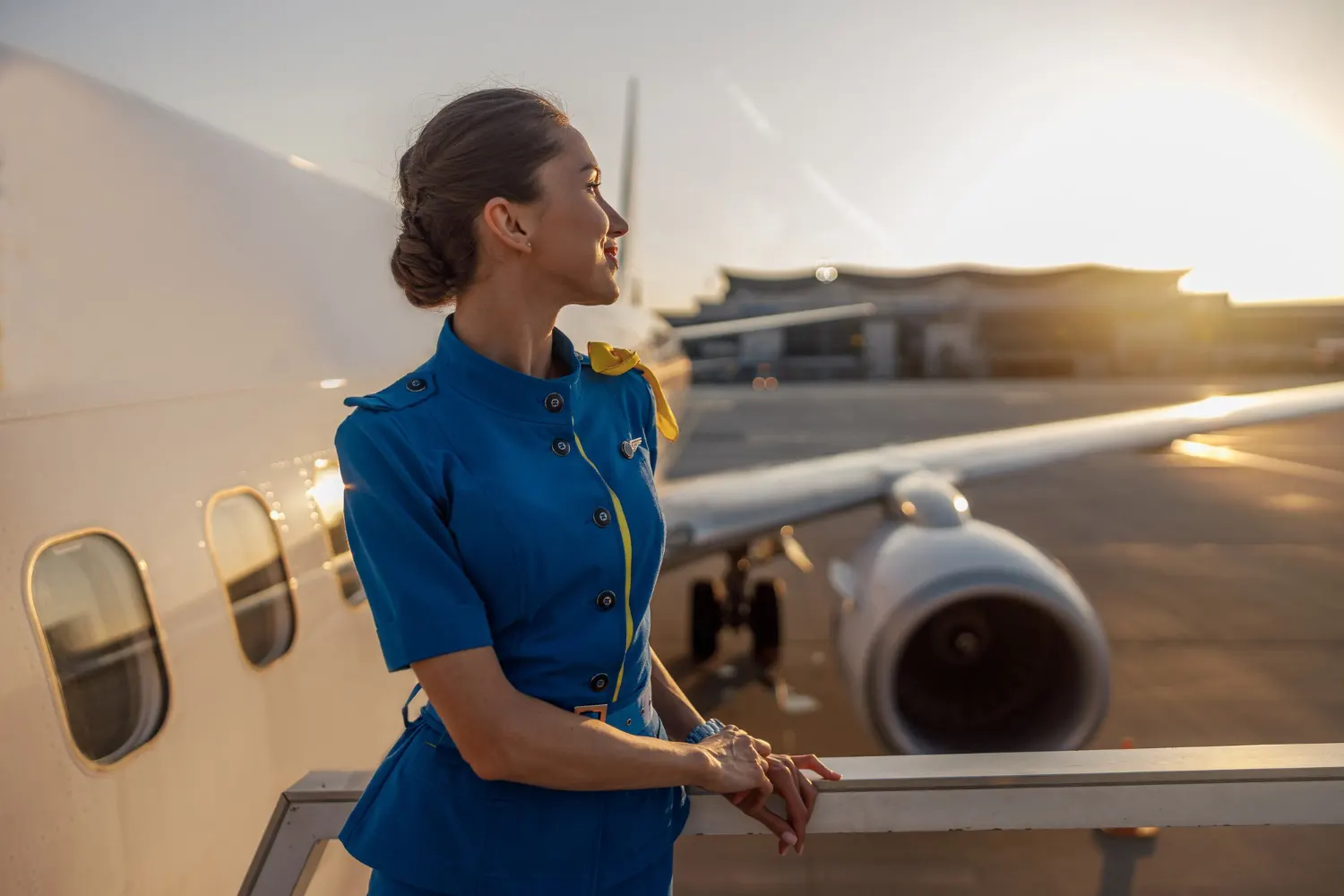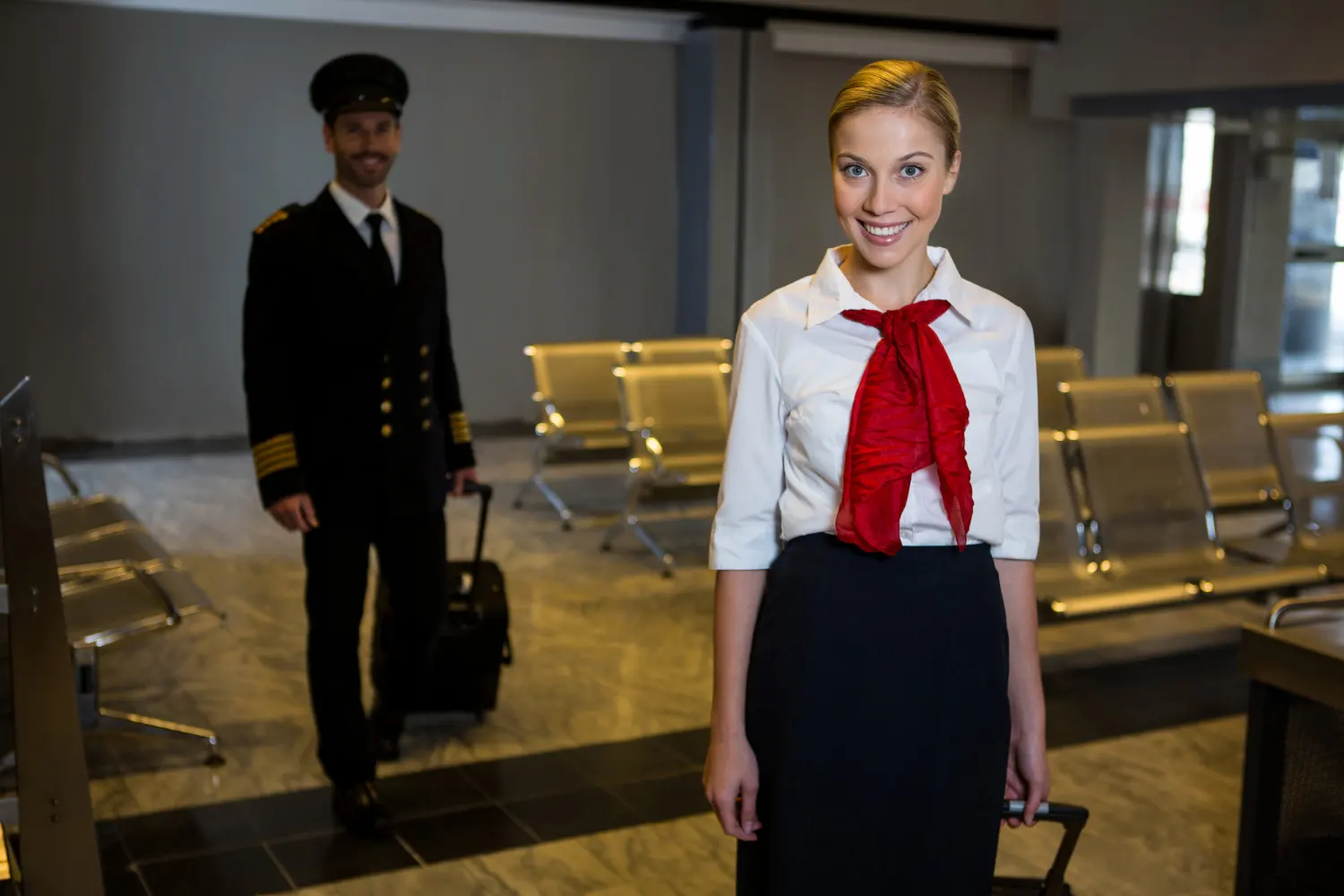What GCSEs Do You Need to Be a Flight Attendant? Subjects, Study Tips and Career Goals

June 30, 2025 | 13 hours | By Career
June 30, 2025 | 13 hours | By Career
In This Article:
Dreaming of jetting off to exotic destinations while helping passengers feel comfortable and safe? Becoming a flight attendant offers an exciting career combining travel, customer service, and responsibility. But what educational foundation do you need to launch this high-flying career?
How many GCSEs do you take to be a flight attendant? To become a flight attendant, you'll generally need a minimum of 5 GCSEs, including English and Maths, at grades 9-4 (A-C), or equivalent qualifications. Most airlines require these core subjects as they're essential for communication, safety calculations, and handling passenger situations. Some airlines may have specific grade requirements, particularly for Maths and English, and many value additional foreign language qualifications.
The good news is that becoming a flight attendant doesn't require university studies. Instead, you'll complete specialised cabin crew training after meeting the basic GCSE requirements. This makes it an accessible career path for those who want to start working sooner rather than spending years in higher education.

What GCSEs do you need to be a flight attendant in the UK?
Core subjects for flight attendants' GCSEs
The aviation industry has clear educational standards, but they're more achievable than you might expect. Let's break down exactly what you need to know.
English
English is non-negotiable for flight attendants. You'll need GCSE English at grade 4 (C) or above. This requirement makes perfect sense when you consider your daily responsibilities, which include delivering safety demonstrations, handling emergencies, communicating with passengers from diverse backgrounds, and completing detailed incident reports.
Strong English skills ensure you can clearly explain safety procedures, calm anxious passengers, and communicate effectively with the flight crew. During emergencies, your ability to give clear, calm instructions could save lives.
Maths
GCSE Maths at grade 4 (C) or above is equally essential. Flight attendants regularly apply mathematical skills to calculate passenger numbers, manage meal services, handle duty-free sales, and understand weight distribution principles that impact flight safety.
You'll also need maths skills for currency conversions on international flights, calculating passenger compensation for delays, and understanding basic flight statistics and safety data.
CTA Button: “Take a look at our post on How to Revise for GCSEs effectively”
Easy Flexible Payments with CloudLearn
Spread the cost of your course with flexible, affordable payment plans.
Find out more
What subject is best for a flight attendant? Complementary GCSE subjects
While English and Maths form your foundation, several other GCSE subjects can significantly strengthen your application and prepare you for the diverse challenges of cabin crew work.
Geography
Geography provides invaluable knowledge about world destinations, time zones, climates, and cultural awareness. Understanding the customs, weather patterns, and geographical features of different countries helps you provide passengers with more effective travel advice and manage international flights more efficiently.
Foreign languages
Though English is the most critical language for flight attendants, additional languages dramatically improve your employment prospects. Airlines operating international routes highly value crew members who speak French, Spanish, German, Mandarin, or Arabic. Even basic conversational skills in a second language can set you apart from other candidates.
History
History GCSE develops cultural awareness and understanding of different societies, which proves invaluable when serving international passengers. This knowledge enables you to navigate cultural sensitivities and deliver more effective customer service to diverse passenger groups.
Psychology
Understanding human behaviour becomes crucial during stressful situations like turbulence, delays, or medical emergencies. Psychology GCSE provides insights into managing anxious passengers, de-escalating conflicts, and recognising signs of distress.
Business
Business studies offers practical knowledge of customer service principles, sales techniques for duty-free items, and an understanding of airline operations from a commercial perspective.
Science/Physics
A basic understanding of science helps you comprehend aircraft systems, cabin pressure changes, and the functionality of safety equipment. This knowledge makes you more confident in explaining safety procedures and handling technical questions from curious passengers.
How many GCSEs do you need to be a flight attendant?
Most airlines require a minimum of 5 GCSEs at grades 9-4 (A*-C), though some may accept equivalent qualifications. The typical high school student takes 8-10 GCSEs, so meeting this requirement shouldn't be challenging if you're currently homeschooling GCSEs.
The key is to ensure that you include English and Maths among your five GCSEs, as these are specifically required rather than just recommended.

Can you be a flight attendant with no GCSEs?
While having no GCSEs makes the path more challenging, it's not necessarily impossible. Some airlines may accept equivalent qualifications such as:
- Functional Skills in English and Maths (Level 2)
- NVQ qualifications
- International qualifications equivalent to the GCSE standard
- Adult education certificates
However, having proper GCSEs significantly improves your chances and opens doors to more airlines. If you don't currently have the required GCSEs, consider enrolling in adult education courses or online GCSE programs to meet these standards.
How can you become a flight attendant?
Unlike many careers, becoming a flight attendant doesn't require university study. Instead, you'll follow this typical pathway:
Step 1: Meet basic requirements, including age (usually 18-21 minimum), GCSEs, and physical requirements.
Step 2: Apply to airlines that are recruiting cabin crew. Major UK airlines include British Airways, Virgin Atlantic, EasyJet, and Ryanair.
Step 3: Complete airline training - Successful candidates undergo intensive 4-8 week training programs that cover safety procedures, first aid, customer service, and aircraft-specific knowledge.
Step 4: Obtain certifications, including Cabin Crew Attestation (CCA) and any airline-specific qualifications.
Different airlines have varying entry requirements, but most UK carriers follow similar standards, so be sure to check their specific prerequisites. Additionally, some candidates choose to complete independent cabin crew courses before applying; however, these aren't always necessary, as airlines often provide their training.
Ready to start your GCSE or IGCSE journey?
Explore our GCSE courses online and take the first step toward achieving your educational goals today.
View our GCSE courses
What qualifies you to be a flight attendant?
Beyond GCSEs, airlines look for candidates who meet several additional criteria:
- Swimming abilities: You must be able to swim at least 25 meters unaided, as you may need to assist in water emergencies or evacuations.
- Foreign languages: Adding additional languages to your application can significantly enhance your chances, especially for international carriers.
- Good general health: This includes adequate hearing and eyesight (glasses and contact lenses are usually acceptable), as you'll need to monitor passenger safety and read emergency equipment.
- Physical specifications: Most airlines require flight attendants to be at least 5'1" tall or able to reach overhead compartments safely. Weight requirements vary, but generally focus on being physically fit enough to perform emergency duties.
- Extra qualifications, such as first aid certification, customer service experience, a hospitality industry background, and food handling certificates, all strengthen your application.
What is the age limit for cabin crew?
Most airlines require candidates to be at least 18 years old, although some carriers may have a higher minimum age. There is typically no maximum age limit, making this a viable career change option for people at various life stages.
What A-levels do you need for flight school?
A-levels aren't required for cabin crew positions, though they can be beneficial if you're interested in progressing to pilot training or airline management roles later in your career.
Take off on your journey to becoming a flight attendant with CloudLearn!
Ready to pursue your dream of becoming a flight attendant? The first step is ensuring you have the right GCSEs. CloudLearn offers flexible, online GCSE courses in all the subjects you need, including English, Maths, Geography, and Foreign Languages.
Our courses are designed for busy lifestyles, allowing you to study at your own pace while balancing work and other commitments. With expert tutor support and comprehensive course materials, you'll be well-prepared for your GCSE exams and your future aviation career.
Whether you're a school leaver planning your next steps or an adult looking to change careers, CloudLearn makes achieving your educational goals convenient and affordable.
Frequently Asked Questions
Is it hard to be a flight attendant?
Being a flight attendant requires physical stamina, emotional resilience, and excellent people skills. The work involves irregular hours, time zone changes, and dealing with challenging passengers. However, many find the travel opportunities, variety, and team environment highly rewarding.
Do flight attendants need A-levels?
No, A-levels aren't required for cabin crew positions. Airlines focus on GCSEs, personal qualities, and completion of their training programs rather than advanced academic qualifications.
Which subject is best for a flight attendant
While English and Maths are essential, foreign languages offer the most significant career advantage. Geography, Psychology, and Business Studies also provide valuable skills for the role.
Do flight attendants get paid well?
UK flight attendant salaries typically range from £15,000 to £25,000 as a starting salary, rising to £ 25,000 to £ 40,000+ with experience. International airlines and senior positions often offer higher compensation, along with benefits such as free flights and accommodation allowances.